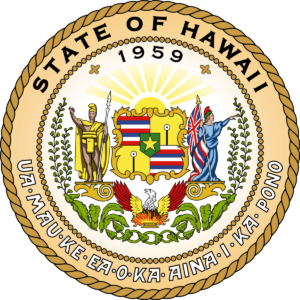Hawaii surrogacy laws & gestational process guidelines

- Is gestational and traditional surrogacy legal in Hawaii?
- What specific surrogacy requirements apply in Hawaii, if any?
- What must be included in a legally valid Hawaii surrogacy contract?
- What factors influence the cost of surrogacy in Hawaii, including s compensation and agency fees?
- What influences how much surrogacy costs and surrogates get compensated in Hawaii compared to other states?
- How friendly is LGBTQ+ surrogacy in Hawaii?
General Surrogacy context in Hawaii
Gestational surrogacy is permitted in Hawaii because there are no specific laws prohibiting it and many intended parents have been successful in pursuing surrogacy to build their families.
Although the following guide can give you a better understanding of the general rules and regulations of surrogacy in Hawaii, it is not meant to be used as legal advice. It is important to consult with an experienced attorney to guide you through your unique journey.
Below is a list of some of the most frequently asked questions about surrogacy in Hawaii.
Is Gestational Surrogacy Legal in Hawaii?
Yes. Since there are no laws prohibiting surrogacy, it is considered legal and courts are generally favorable to cases involving surrogacy.
Is Traditional Surrogacy Legal in Hawaii?
Yes. Yes. Similar to gestational surrogacy, since Hawaii doesn’t have any laws outlawing surrogacy, traditional surrogacy is considered legal by the courts.
Traditional surrogate journeys are rare; however, because in these cases, the surrogate is the biological mother of the child and courts may favor the biological mother and grant her parental rights. Due to the risks associated with pursuing this path, most all attorneys will not complete a traditional surrogacy in Hawaii.
Is Compensated Surrogacy Legal in Hawaii?
Yes. Since there are no laws prohibiting compensated surrogacy, it is considered legal; this is something that is established when the surrogacy contract between surrogates and intended parents is drafted. In addition to a surrogate’s base pay, surrogates are compensated for their time, the medical risks they accept, and the list of expenses below:
- Mock cycle compensation
- Embryo transfer compensation
- Starting medication compensation
- Monthly allowance for miscellaneous expenses
- Monthly Housekeeping budget
- Maternity clothing budget
- Medical expenses
- Travel to and from clinic/hospital
- Lost wages if applicable
- Child care if bed rest is required
- Term life insurance
- Medical insurance
- Independent legal counsel
- Psychological counseling
- Other depending on agency
Creating a Hawaii Surrogacy Contract
Surrogacy contracts in Hawaii, and every other state, must be created by surrogate attorneys; intended parents and surrogates work with separate surrogacy attorneys to ensure both parties’ interests and rights are protected. These attorneys will negotiate a contract that addresses the following:
- The rights and responsibilities of each party
- Any potential risks and liabilities and the steps to take should they occur
- Surrogate compensation and other financial information, like surrogacy insurance
- Agreements on sensitive issues like selective reduction and termination
- Contact expectations
- Other financial information, like coverage of medical expenses
- And more
Once the contract is agreed upon, signed by both parties, and executed, the medical process of surrogacy can begin.
Determining Legal Parentage in Hawaii
In Hawaii, legal parentage is declared after the birth of the child born through surrogacy because courts in this state usually do not issue pre-birth orders. Intended parents who are genetically related to the child can obtain a post-birth order. Any unrelated parents; however, regardless of the marital status, will need to complete an adoption after birth.
If neither of the intended parents is genetically related to their child born through surrogacy, they will not be granted a post-birth order and will need to adopt their child after birth. There may be additional steps, depending on the situation, so it is important to consult with an experienced attorney before beginning your journey.
Most Common FAQ about surrogacy in Hawaii
Below is a list of some of the most frequently asked questions about surrogacy in Hawaii:
Are Surrogacy Contracts (Whether Compensated or Altruistic) Enforceable in Hawaii?
Since Hawaii does not have a statutory rule on this, there is not a specific set of guidelines for when a judge may uphold the validity of a surrogacy arrangement. However, since a surrogacy contract is like any other legal contract, it is presumed that the contract would be enforceable.
Are There Any Particular Laws for Parents Outside the U.S. Who Complete a Surrogacy in Hawaii?
No. There are no surrogacy laws in Hawaii that specifically apply to international intended parents. It is important, however, that intended parents from another country speak with an immigration lawyer to ensure they follow the proper legal steps for taking their child home.
What Happens in Cases Where Intended Parents Use a Donor Egg, Sperm, or Embryo?
In Hawaii, intended parents who use a donor egg, sperm, or embryo must complete an adoption to protect their parental rights. There are no laws governing the rights of egg, sperm, or embryo donors, so it is important to consult with an experienced surrogate attorney to ensure you take the necessary steps to establish your parental rights.
Same Sex surrogacy in Hawaii
Is Same-Sex Surrogacy Legal in Hawaii?
A: Yes. Same-sex couples and LGBT+ intended parents have the same legal rights and will experience generally the same surrogacy process as opposite-sex couples, with the exception of likely requiring an egg donor or sperm donor to complete the IVF procedure.
Are There any Additional Laws Impacting Same-Sex Parenting in Hawaii?
No. There are no additional laws impacting same-sex parents in this state.
Reproductive law Practitioner in Hawaii
Honolulu, HI
clockwood@schlackito.com
Visit Schlack Ito for more details
(808) 523-6040
